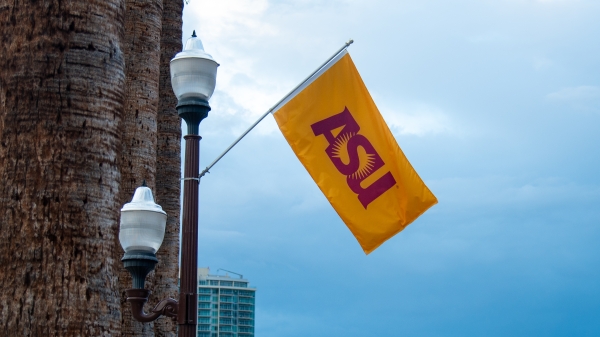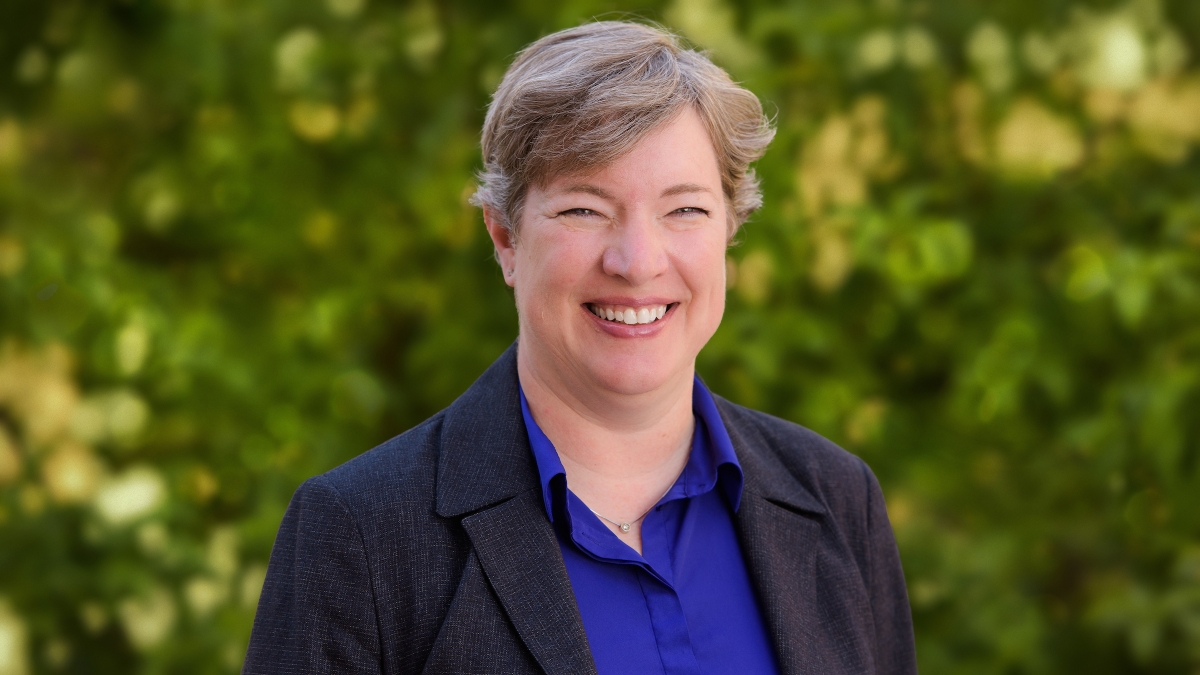Editor’s note: This story is being highlighted in ASU Now’s year in review. Read more top stories from 2020.
Elizabeth "Libby" Wentz, a professor in the School of Geographical Sciences and Urban Planning and dean of social sciences in the College of Liberal Arts and Sciences, has been appointed to a new leadership role at Arizona State University.
Effective July 1, Wentz will assume the role of vice provost and dean of the Graduate College. The position will be vacated by Dean Alfredo Artiles, who accepted a faculty position at Stanford University’s Graduate School of Education.
Wentz is recognized for her global leadership in the social sciences and was recently named the 2020 Fellow of the Association of American Geographers. Wentz received her doctorate from Pennsylvania State University and her master’s and bachelor’s degrees from Ohio State University.
Since her arrival at ASU in 1997, Wentz has devoted her research to geographic information science technologies, such as remote sensing and spatial analysis, to understand urban environments. Under her leadership, the School of Geographical Sciences and Urban Planning launched a first-of-its-kind bachelor’s degree in geographic information science.
“ASU’s nationally recognized graduate programs serve scholars with a global mindset who are focused on solving problems of social significance,” said ASU President Michael Crow. “Libby Wentz’s expertise as a social scientist, her leading work in community resilience and her exemplary graduate student mentorship will provide valuable guidance in the college’s design and evolution as a resource for lifelong learners.”
Wentz has been instrumental for the university’s graduate students, not only elevating their experiences with graduate-level research, but teaching them how to design, write and present a successful dissertation proposal. For her exceptional service to graduate students and postdoctoral scholars, Wentz received the Graduate College’s Outstanding Faculty Mentoring award in 2016.
“Libby’s commitment to the professional development and career advancement of graduate students makes her a natural fit for this leadership role,” said Mark Searle, executive vice president and university provost. “The university needs to build on the initiatives started under Dean Artiles and expand our capacity to serve graduate students and postdoctoral fellows.”
One of those initiatives is creating a broader societal impact by increasing more opportunities for women and underrepresented minorities in generally male-dominated fields.
“I plan to look more at what those programs look like by recruiting students from a lot of different spaces, including American Indian students and Latino students, Hispanic students, African American students,” Wentz said.
Wentz also plans to focus on pregraduate programs, especially for students who don’t plan to stay within the same discipline, and postgraduate programs for students seeking high-level government positions rather than traditional academic pathways.
“We’re seeing increasingly more and more of our PhD students that are taking their skills, and their research skills, and going into industry,” Wentz said.
Wentz would like to prepare students for those pathways through innovation and many of the other institutional goals at ASU.
In her current role, Dean Wentz has been deeply involved in the professional development of faculty within the social sciences while expanding her knowledge in fields outside her expertise. She believes this breadth of experience will help strengthen her goal of creating career paths and options for students in the Graduate College.
“Graduate students and postdoctoral scholars are central to the success of the New American University because of their unique contributions to educating students and advancing knowledge,” Wentz said. “I’m thrilled to have the opportunity to shape the programs in ASU’s Graduate College.”
Top photo by Jarod Opperman/ASU
More University news

ASU names 3 Regents Professors for 2025
Three Arizona State University professors are being honored with the highest faculty award possible — Regents Professor.The three are internationally recognized experts at the top of their fields,…

Lester Godsey joins ASU as chief information security officer
With a career spanning nearly three decades of professional IT experience, Lester Godsey is back where he first started — serving the community at Arizona State University.As a two-time ASU alum,…

ASU a top-ranked university for graduate employability
Students usually seek higher education degrees to build their skills and aptitude in their chosen vocation, and advance their life opportunities. And Arizona State University is a good place to do…
